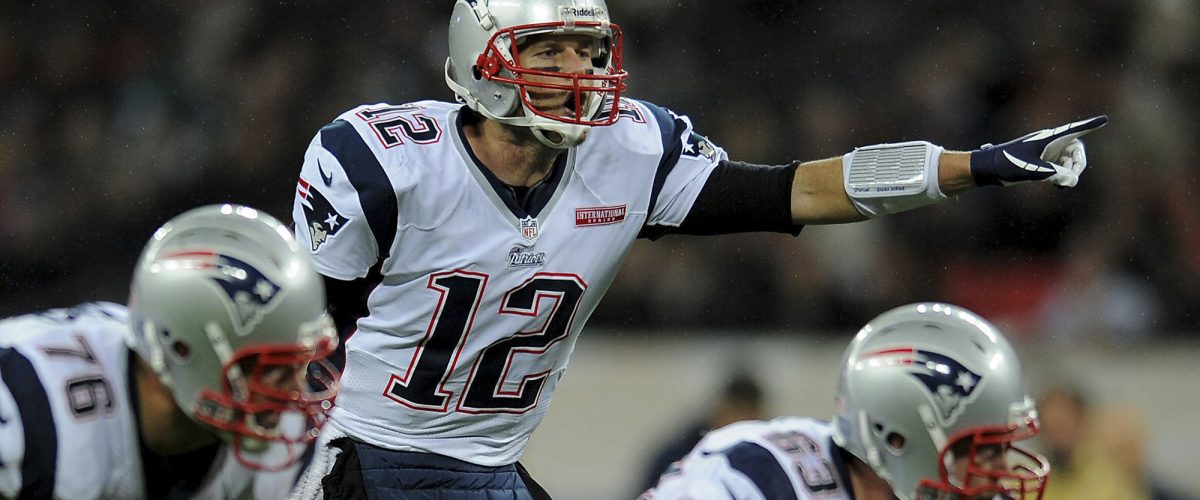Try imagining what it’s like to be Tom Brady, who announced his retirement — for the second time — last week. In the National Football League, the 45-year-old quarterback is the Greatest of All Time. Nobody else has played in 10 Super Bowls, won seven and earned Most Valuable Player awards in five. Even people who rooted against him agree he’s been terrific.
In his latest announcement, Brady claimed he’s hanging up his cleats “for good.” Near the end of his 55-second video speech, he voiced gratitude, a holy virtue, to his family, friends, teammates and even his competitors. He signed off with a more powerful virtue, telling them, “I love you all.”

Marv Knox
Something else he said should nudge everybody — even non-fans who don’t know a touchdown from a halftime show — toward moral reckoning. Right after his words of gratitude and just before his assertion of love, Brady added a line you might expect a fantastically talented, enormously successful and gaudily wealthy person to say at retirement. But given what happened in-between his first retirement announcement and when he re-retired this year, it sounded incomprehensible.
“I wouldn’t change a thing,” he insisted.
Really?
A year ago, when Brady “retired” the first time, his wife, Gisele Bündchen, expressed relief and happiness. Of course. Imagine the stress and worry that comes with being married to someone playing pro football — and a vulnerable position, at that — against athletes half his age. But then when Brady un-retired, Bündchen left him, and they divorced soon after. Maybe they would have divorced anyway, but Brady’s decision to put a 23rd pro season ahead of his wife’s wishes seems to have been in play.
Meanwhile, the football season that apparently cost Brady his marriage turned out to be one of his worst. The Tampa Bay Buccaneers finished with eight wins and 10 losses. In his last game, the mediocre Dallas Cowboys thrashed the Bucs, 31-14, and Brady looked feeble and lost.
Still, he “wouldn’t change a thing.” Call him the Greatest of All Time, but he’s a lousy theologian.
Enough about football, let’s talk self-awareness, regret and repentance.
“Looking at one’s life honestly — recognizing mistakes and learning how to do better — is essential for spiritual health.”
Looking at one’s life honestly — recognizing mistakes and learning how to do better — is essential for spiritual health. God requires each person to practice justice, love mercy and live in humility, the prophet Micah stressed. Seven centuries later, Jesus insisted the two greatest commandments are to love God completely and to love others as we love ourselves.
A person cannot heed Micah and follow Jesus without self-awareness. We cannot discern if we are just, kind and humble without looking at how we relate to others. We cannot evaluate how we love God and others without examining our lives — our actions — in light of how they reflect Jesus and how they impact others.
So, to be faithful, we must listen to our lives, as Frederick Buechner advised. This requires honest assessment. It means being candid and humble enough to admit when we should “change a thing” to live more lovingly, care-fully and redemptively.
“Since no one is perfect, everyone should feel regret every now and then.”
Consequently, regret provides a healthy beacon for living faithfully. Regret signals when we should “change a thing” or two in order to live out honest, sincere love for God and for others. Since no one is perfect, everyone should feel regret every now and then. This is not the same as living regretfully, wallowing in remorse and what-ifs. But occasional, appropriate regret is an inevitable factor necessary for spiritual wholeness.
That’s because regret, feeling remorse for mistakes, is vital for repentance. And repentance is vital for living a God-directed, other-concerned life.
Of course, “repentance” is one of the most-maligned theological terms, abused from both the right and the left. Conservatives often over-emphasize the severity of repentance. The way they describe it, repentance sounds like perpetual groveling before an ever-wrathful God. In turn, liberals tend to roll their eyes at conservatives’ excess but fail to appreciate repentance’s redemptive results.
Repentance involves turning — turning away from selfish desires and toward God’s better plan. It’s a course correction. It’s willingness to “change a thing” to live more lovingly toward both God and others.
“I wouldn’t change a thing” may sound like a compelling epithet for a charmed life, but it’s a poor way to think about how to live.
Marv Knox founded Fellowship Southwest after editing the Baptist Standard almost 20 years. Now retired, he lives with his wife, Joanna, in Durham, N.C.
Related articles:
To my ‘future self’: instead of resolutions, recycle mistakes and regrets into something redemptive | Opinion by Christy Edwards
What makes a genuine apology? | Opinion by Bruce Reyes-Chow


